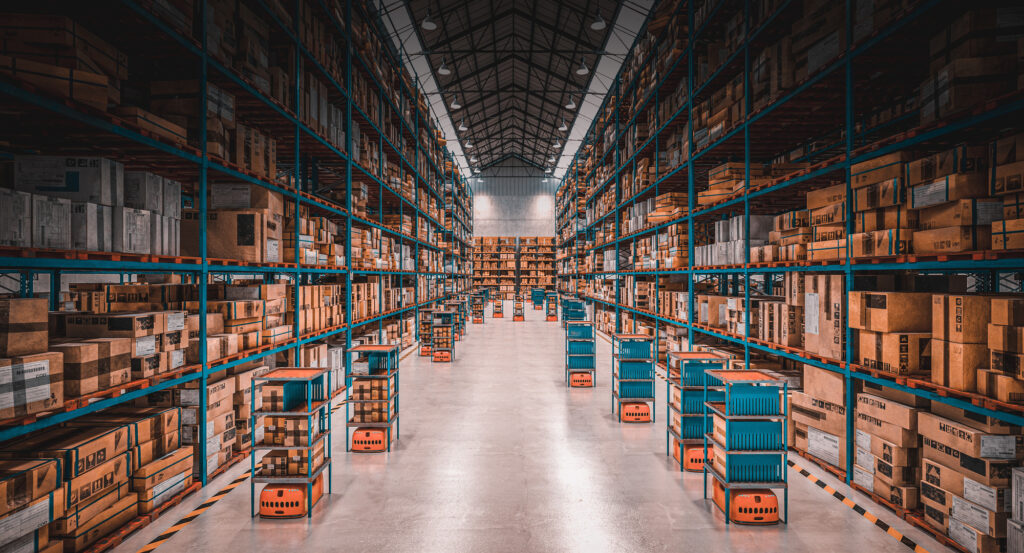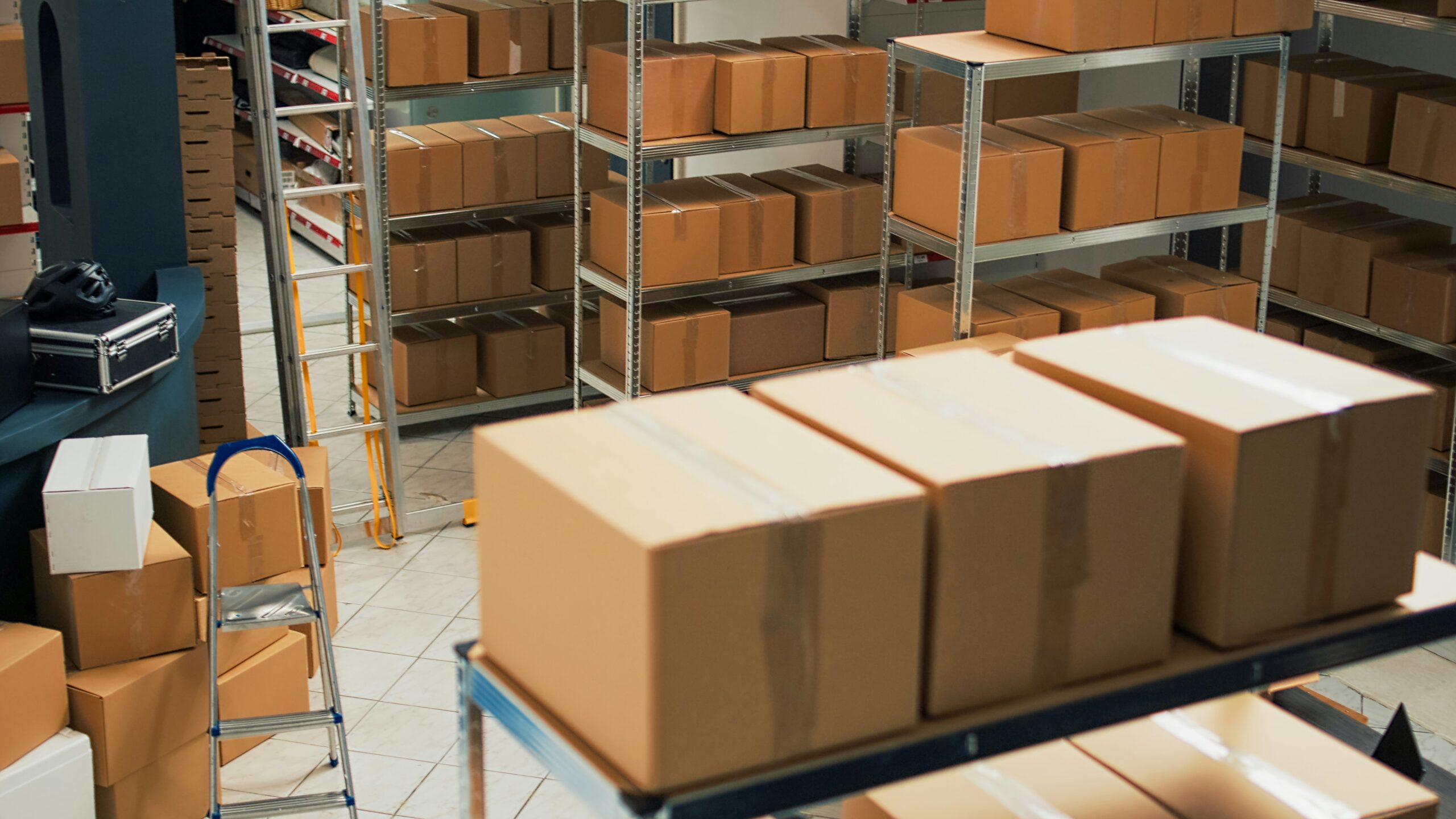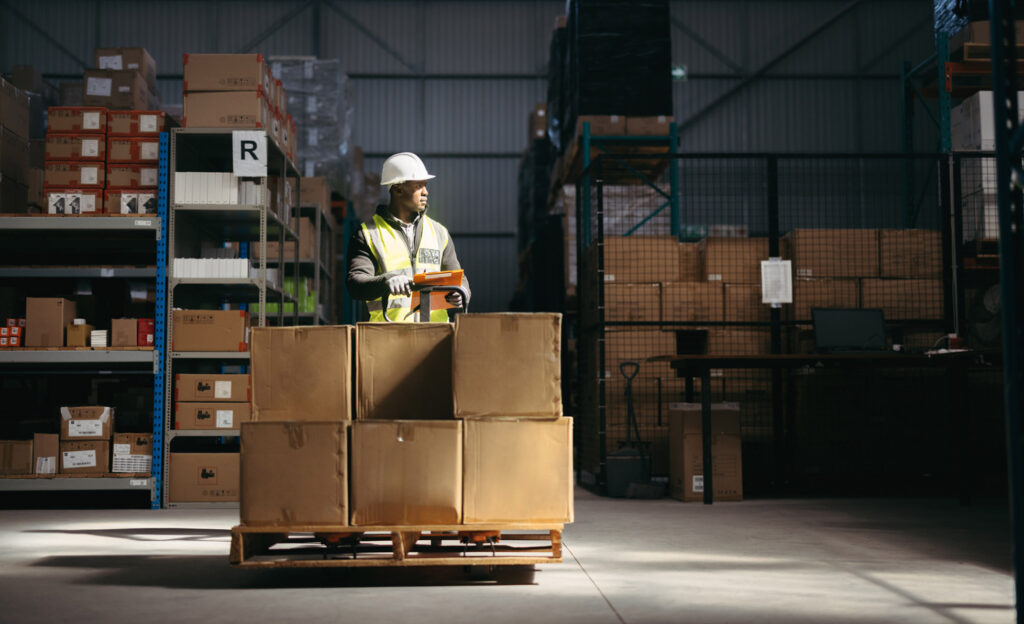In today’s globalized and fast-paced market, businesses are constantly seeking ways to optimize their operations and stay ahead of the competition. One area that has gained significant attention is wholesale B2B fulfillment, the process of managing and delivering products from manufacturers or distributors to other businesses. As industries become more specialized and customer expectations go up-up-up, the need for tailored fulfillment solutions has never been more critical.
Imagine a technology startup launching a new line of smart home devices. Their fulfillment needs will differ from a pharmaceutical company distributing sensitive medications or a fashion brand releasing a seasonal collection. Each industry presents unique challenges and requirements that cannot be adequately addressed with a one-size-fits-all approach.
Understanding B2B Fulfillment: The Basics
At its core, wholesale B2B (business-to-business) fulfillment refers to the logistics and processes involved in managing bulk orders between businesses. (In comparison, B2C (business-to-consumer) fulfillment focuses on smaller, more frequent deliveries to individual customers.) B2B fulfillment typically involves larger orders and recurring orders, both with complex requirements that may include:
– Inventory Management: Handling large quantities of products, often with a wide range of SKUs.
– Order Processing: Managing bulk orders with specific packaging, labeling, and delivery specifications.
– Logistics and Transportation: Coordinating shipments requiring freight services, specialized carriers, or international shipping.
– Compliance and Regulations: Adhering to industry-specific laws and standards, such as safety regulations or import/export restrictions.
As companies scale and expand into diverse markets, the complexity of their fulfillment needs increases. This requires a strategic, customized approach to ensure timely, efficient, and cost-effective delivery of products. The benefits of a tailored B2B approach are clear: improved efficiency, reduced operational costs, and enhanced customer satisfaction.
Why Customization is Essential in B2B Fulfillment
Different industries have varied logistical requirements, regulatory constraints, and customer expectations. A single, generic solution does not work in B2B fulfillment, as businesses within distinct sectors require specialized services to ensure operational efficiency. Here’s how customization plays out across different industries:
Retail and Consumer Goods
Retail and consumer goods companies call for accurate inventory management, fast replenishment cycles, and real-time visibility into stock levels, all crucial to preventing stockouts or overstock. Fulfillment centers must offer real-time data analytics and automated inventory systems that allow businesses to manage high volumes of products seamlessly. Flexibility in shipping methods — from palletized freight for large orders to parcel shipments for smaller restocks — helps retailers navigate fluctuating demand, especially during peak seasons or promotional periods.
Tailored services such as personalized packaging, barcode tracking, and omnichannel integration are also key. As retail businesses expand across online and brick-and-mortar channels, 3PL providers must be equipped to handle cross-channel orders and returns efficiently, ensuring seamless fulfillment experiences across all platforms.
Retail Challenges:
– High SKU Variety: Managing a wide range of products, including sizes, colors, and styles, can complicate inventory management and order fulfillment.
– Demand Fluctuations: Holiday seasons or promotional events require scalability in fulfillment operations to meet increased order volumes without delays.
– Omnichannel Integration: Many retailers now operate across multiple sales channels online and in-store.
Tailored 3PL Solutions:
– Dynamic Inventory Management Systems: Advanced inventory management systems, such as RFID and real-time tracking, ensure accurate handling of high SKU volumes.
– Scalable Fulfillment Operations: Adjust warehousing and shipping capacities during peak seasons to handle surges in demand.
– Omnichannel Fulfillment Integration: Integrate across multiple platforms for consistent inventory management and order tracking.
Food and Beverage
The food and beverage sector presents unique challenges for B2B fulfillment that demand meticulous attention to detail at every stage: perishable goods, strict hygiene standards, and complex, stringent health and safety regulations around handling and storage.
Fulfillment in this industry involves unique logistics considerations for a 3PL provider, such as the need for temperature-controlled environments, strict hygiene protocols, and real-time monitoring systems to maintain compliance and ensure food safety. That includes the end-to-end traceability for products that need to be tracked back through the supply chain in the event of a recall.
Food and Beverage Challenges:
– Shelf Life Constraints: Products have limited time before expiration.
– Food Safety Regulations: Compliance with health codes and regulations across products and regions.
– Temperature Control: Many items require refrigeration or freezing to maintain product integrity and meet safety standards.
Tailored 3PL Solutions:
– First-Expiry, First-Out (FEFO) Systems: Ensuring older stock is sold first to minimize waste.
– Strict Hygiene Standards: Regular inspections and sanitation protocols, including FDA and USDA regulations in the U.S., as well as international standards like HACCP.
– Cold Chain Logistics: Maintaining consistent temperatures throughout storage and transportation.
Healthcare and Pharmaceuticals
Healthcare companies require stringent adherence to regulations regarding the storage, handling, and transportation of medical products. This includes compliance with temperature control, proper labeling, and adherence to healthcare standards like the FDA’s guidelines for pharmaceutical products. A customized approach in this sector means implementing cold chain logistics for temperature-sensitive items, ensuring the integrity of products throughout their lifecycle.
B2B fulfillment in healthcare also involves managing large, recurring orders for hospitals and clinics, requiring precise inventory management and adherence to strict delivery timelines. Critical supplies like medical devices or pharmaceuticals often need rapid replenishment to prevent disruptions in patient care. To address these needs, 3PL providers working with healthcare clients must develop solutions for rapid fulfillment while maintaining regulatory compliance.
Healthcare Challenges:
– Regulatory Compliance: Adherence to FDA regulations, Good Distribution Practices (GDP), and other local and international laws.
– Traceability: Maintaining detailed records for product recalls and audits.
– Temperature Sensitivity: Many pharmaceuticals require cold chain logistics.
Tailored 3PL Solutions:
– Compliance Expertise: Employing staff trained in healthcare regulations and maintaining certifications.
– Advanced Tracking Systems: Implementing serialization and barcoding for end-to-end traceability.
– Cold Chain Management: Utilizing refrigerated storage and transportation with continuous temperature monitoring.
Electronics and Technology
Many products in the electronics industry are fragile and high-value, with intricate assembly requirements: these call for a high level of precision and care during the fulfillment process. Customizing fulfillment for electronics involves implementing advanced quality control measures to prevent damage, automated systems for accurate order picking, and specialized packaging to protect delicate items.
Constant innovation means tech products have a short lifecycle — so inventory management must be highly efficient. Companies need a 3PL with proven real-time tracking systems to monitor inventory levels, manage returns, and handle product recalls, ensuring that supply chain disruptions are minimized.
Electronics and Technology Challenges:
– Sensitive Handling: Products like semiconductors or delicate components require careful packaging and handling.
– Climate Control: Certain electronics need temperature and humidity-controlled environments to prevent damage.
– Fast Turnover: The pace of innovation means products have shorter life cycles.
Tailored 3PL Solutions:
– Specialized Packaging: Using anti-static materials and custom cushioning to protect items.
– Environmental Controls: Climate-controlled warehousing maintains optimal conditions.
– Efficient Inventory Management: Utilizing just-in-time (JIT) inventory systems to reduce holding costs and minimize obsolescence risks.
Automotive Industry
The automotive industry deals with large, complex parts often ordered in bulk by repair shops, manufacturers, and distributors. Fulfillment for automotive parts requires specialized handling, including heavy equipment for moving large components, detailed inventory tracking to prevent losses, and compliance with industry-specific regulations.
B2B fulfillment in this sector offers JIT delivery to ensure that manufacturers and repair shops have the exact parts they need without the need to maintain large inventories on-site. This reduces storage costs and increases operational efficiency.
Automotive Challenges:
– JIT Delivery: Components must arrive exactly when needed to avoid production delays.
– Heavy and Bulky Items: Handling large or heavy parts requires specialized equipment.
– Complex Supply Chains: Managing multiple suppliers and international logistics.
Tailored 3PL Solutions:
– Real-Time Inventory Visibility: Using advanced software to track stock levels and predict needs.
– Specialized Handling Equipment: Forklifts and cranes designed for heavy or oversized items.
– Coordinated Scheduling: Close collaboration with manufacturers to synchronize delivery schedules.
Apparel and Fashion
Fashion and apparel companies rely heavily on quick turnaround times, particularly with the rise of fast fashion trends. In this industry, 3PLs must provide tailored services that include rapid order processing, flexible shipping options, and real-time inventory management to handle fluctuating demand and seasonal trends.
Personalized services such as custom packaging, branded labels, and kitting services are crucial for fashion brands looking to create a distinctive customer experience. And because many fashion companies operate globally, a 3PL must be able to navigate complex international shipping regulations and provide transparent tracking across borders.
Fashion Challenges:
– High SKU Variety: Managing numerous styles, sizes, and colors increases complexity.
– Seasonality: Demand peaks during certain times, such as holidays or fashion seasons.
– Returns Management: High return rates, especially in online retail, necessitate efficient reverse logistics.
Tailored 3PL Solutions:
– Flexible Warehousing: Scaling storage capacity up or down based on demand.
– Efficient Picking Systems: Technologies like RFID tagging to speed up order processing.
– Reverse Logistics Processes: Streamlining returns handling to quickly restock or redistribute items.
The Role of a Modern 3PL in B2B Fulfillment
A modern 3PL offers a range of services and expertise to meet the diverse needs of businesses in different industries. Some key areas where 3PL providers add value in wholesale B2B:
Technology Integration: A successful B2B fulfillment process hinges on the use of advanced technologies such as warehouse management systems (WMS), transportation management systems (TMS), and enterprise resource planning (ERP) tools. A customized fulfillment solution ensures seamless integration between a business’s existing systems and the 3PL’s infrastructure, enabling real-time data sharing and enhanced visibility across the supply chain.
Automation: By automating routine tasks such as order processing, inventory updates, and shipment tracking, 3PLs can improve operational efficiency while reducing human error. This has added benefits in environments with high SKU counts or repetitive tasks. Automated Guided Vehicles transport goods within warehouses without human intervention. Robotic picking systems increase speed and accuracy in order to fulfill the needs of customers. AI and machine learning optimize routing, predict demand, and manage inventory levels. The result: a faster, more accurate fulfillment process that adapts to the specific needs of each industry.
Flexible Shipping and Handling: Shipping in the B2B world often involves larger, more complex orders (especially compared to B2C), requiring various modes of transportation (such as LTL, FTL, or freight shipping). A customized approach ensures that the most cost-effective and efficient shipping methods are used based on the order’s volume, value, and destination. Whether palletized goods, oversized shipments, or delicate items requiring special handling, a modern 3PL can provide tailored logistics solutions that align with industry-specific requirements.
Compliance and Risk Management: Industries such as healthcare, electronics, and automotive require strict adherence to regulatory standards. A modern 3PL must have the expertise to navigate these regulations, ensuring compliance in product labeling, transportation, and storage areas. 3PLs play a critical role in risk management by implementing strategies to mitigate disruptions in the supply chain, such as natural disasters, transportation delays, or supplier shortages.
Custom Packaging and Branding: Custom packaging is an essential part of the fulfillment process for many industries. Whether it’s ensuring the safe delivery of fragile electronics or creating branded packaging for retail, a 3PL can offer customized solutions that meet specific business needs. This protects the products and enhances the customer experience by reinforcing brand identity.
Embracing Customization for Success
Businesses that adopt customized fulfillment strategies in wholesale B2B can experience significant advantages:
– Increased Efficiency: Streamlined operations reduce delays and errors.
– Cost Savings: Optimized processes and reduced waste lower operational costs.
– Enhanced Customer Satisfaction: Reliable and timely deliveries strengthen client relationships.
– Regulatory Compliance: Adherence to industry standards prevents legal issues and penalties.
– Competitive Edge: Tailored services differentiate a business in the marketplace.
Companies investing in customized logistics solutions reported a 15% increase in customer satisfaction — and a 10% reduction in operating costs. (Council of Supply Chain Management Professionals)
Customizing wholesale B2B fulfillment for industry needs is essential in today’s competitive market. With 50 years of experience, NBD brings multi-industry knowledge and the tech of a genuinely modern 3PL provider. (We’re among just 7% of 3PLs using advanced robotics.) We’re uniquely positioned to offer tailored solutions that address the specific challenges a diverse range of businesses faces.
By integrating leading tech, flexible logistics options, and industry-specific expertise, we can help you optimize your fulfillment operations, improve efficiency — and ultimately achieve greater customer satisfaction. In an ever-changing logistics landscape, customization in B2B fulfillment is not just a nice-to-have: it’s an absolute must for business growth.





